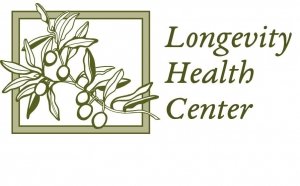Trauma Recovery: Holistic Tools for Health and Wholeness
By Elisabeth Frey, HHP/Patient Coordinator
By its very definition, holistic healthcare is about understanding the interconnection of the heart, soul, mind and body. Trauma is a prime example of the way that our emotions can impact our physical health and wellbeing. Trauma can result from any kind of distressing or disturbing event. We all experience mild traumas throughout our daily life, but when severe trauma occurs, there is significant risk of it causing physical harm.
Symptoms of Trauma
| Mental & Emotional Symptoms | Depression, Anxiety, Shock, Anger, Irritability, Mood Swings, Despair, Mood Swings, Guilt, Shame, Self-Blame, Sadness, Panic attacks, Anger, Irritability, Hopelessness |
| Physical Symptoms | Insomnia, Racing Heartbeat, Muscle Tension, Easily Startled, Aches and Pains, Exhaustion, Nightmares, Edginess, Agitation, Fatigue, Muscle Tension, Dry Mouth, Tachycardia, Headaches, Nausea and Vomiting |
| Psychological Symptoms | Confusion, Difficulty Concentrating, Insecurities, Repressed Memories, Dissociation, Emotional Numbing, Constant Fear, Denial and Disbelief, Flashbacks,
Emotional Detachment, Low Self-Esteem |
| Behavioral Symptoms | Frequent Nightmares, Insomnia, Startled Easily, Fatigue, Edginess, Self-Medicating with Drugs and Alcohol, Self-Harming Behaviors, Difficulty Concentrating, Social Isolation, Avoiding Certain Events that May Trigger Memories, Avoiding Certain People |
When we experience trauma, the body is sent into fight or flight mode. This is a very helpful mechanism of the body, as it is meant to give us the adrenaline we need to survive threats and crises. But when major trauma occurs, our brains often protect us is by a process called dissociation, which can occur in varying degrees.
Dissociation allows us to isolate the trauma and temporarily disconnect brain (or parts of it) from body, so that we are not overwhelmed by the pain, sorrow, or fear of the crisis at hand. However, if there is not an intentional reconnection of this riff between body and brain when the crisis is over, the brain will continue to send signals to the body that it is unsafe, resulting in long-term health effects. For many experiencers of trauma, this process leaves the body stuck in fight-or-flight mode, also known as sympathetic dominance.
When in sympathetic dominance, our bodies do not prioritize things it deems less important, like digestion or sleep. As you can imagine, this leads to many long-term health issues, such as elevated heart rate, blood pressure, and stress hormones that can increase the odds of heart attack, stroke, and hypertension.
While living in a state of sympathetic dominance can be taxing to the physical health of an individual, it is important to note that this state is essential to surviving trauma. Our bodies are not betraying us. The extra adrenaline and heightened alertness that this state produces empowers us to rebuild and reconnect to both ourselves and other safe people. However, it is imperative that the trauma is processed as soon as possible after the threat is over to reduce the negative long-term effects of living in a state of sympathetic dominance.
There are many ways to heal trauma and to reconnect body and mind. Here are a few that I recommend.
Acupuncture: In the past decade, much research has been conducted on the efficacy of acupuncture in assisting those with Post-Traumatic Stress Disorder (PTSD). It has been shown that acupuncture helps rebalance the brain after significant stress, as well as the nervous and hormonal systems. If acupuncture is performed shortly after a traumatic event, it can help reduce the risk of developing PTSD. With more extended treatment, acupuncture can also restore resiliency for those who suffer from long-term and chronic PTSD. Learn More.
David Winston’s Grief Relief Formula: This is the first thing I reach for whenever clients or loved ones have experienced recent loss or trauma. It contains Mimosa (a very effective mood elevator), Rose Petals (which helps open the heart and comfort distress), and Hawthorn Berries, Flowers and Leaves (beneficial for heart and nerves). This formula does not mask pain, but simply allows us to gently open ourselves to face and process it. (Available in the Longevity Nutrition Shop).
Yoga/Meditation: Bessel van der Kolk, MD, a clinical psychiatrist and leading expert on trauma explains the healing benefits of yoga in this way: “When people think about trauma, they generally think of it as a historical event that happened some time ago. Trauma is actually the residue from the past as it settles into your body. It’s located inside your own skin. When people are traumatized, they become afraid of their physical sensations; their breathing becomes shallow, and they become uptight and frightened about what they’re feeling inside. When you slow down your breathing with yoga, you can increase your heart rate variability, and that decreases stress. Yoga opens you up to feeling every aspect of your body’s sensations. It’s a gentle, safe way for people to befriend their bodies, where the trauma of the past is stored.”
There are many meditation apps now available, such as InSight Timer and Headspace. InSight Timer allows you to search meditations by topic, as well as conveniently navigate categories such as “sleep meditations”, “meditations for healing”, and “Christian meditations.”
FSM (Frequency Specific Microcurrent): This therapy works by stimulating the mitochondria which promotes healing through increasing ATP production. There is a specific Trauma Protocol that can both help calm the nervous system after a recent trauma and help process old, stored trauma. Learn More.
EFT Tapping: This is a special technique that combines self-talk with manually stimulating acupuncture points by tapping on them with your fingers. Tapping the acupuncture points calms the nervous system, while you work through negative emotions and reach a place of loving self-acceptance. To get started, it can be helpful to have a pre-developed script to follow, though as you become more proficient in this technique, you can begin identifying your negative emotions and improvising accordingly. This is an amazingly effective tool you can take with you anywhere you go. All you need is yourself! However, if you need help getting started, please don’t hesitate to reach out to us here at Longevity.
Adrenal Supporting Herbs: Adaptogenic herbs like Tulsi, Ashwagandha, and Rhodiola help our bodies adapt to the effects of stress. These plants can be very helpful in supporting our bodies as we rebuild from past trauma, but can also help reduce our likelihood of developing PTSD when faced with traumatic events. We carry a variety of Adaptogenic herb blends in our Nutrition Shop.
Relational Connectedness: Our capacity to withstand distress without getting stuck in a trauma loop varies greatly from person to person. Lifestyle and genetics both play a role. But an overwhelming amount of research has proven that a person’s ability to withstand trauma is most greatly influenced by their sense of connectedness to others. Just as it’s never too late to address past traumas, it is also never too late to seek out healthy and meaningful relationships. There are many support groups built specifically to address particular types of trauma at local churches, and at counseling and community centers. It may take a few attempts to find the place where you feel comfortable, especially since social anxiety is often a consequence of trauma. But don’t give up! Perhaps one-on-one relationships are a better fit for you. There are many licensed professional counselors who specialize in trauma. But regardless of which path you take, healthy supportive relationships and a sense of connectedness are fundamental to your healing.
Please give us a call if you suspect emotional trauma may be playing a role in your health challenges. We are honored to guide and walk alongside you as you figure out solutions that work best for you, guiding you to health and wholeness in mind, body and spirit!


